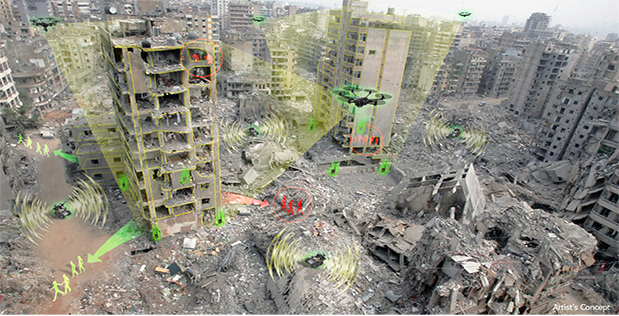
Summary
Urban Reconnaissance through Supervised Autonomy (URSA) is a DARPA program to enable improved techniques for rapidly discriminating hostile intent and filtering out threats in complex urban environments.
Reconnaissance, surveillance, and target identification within urban terrain is a vexing problem for the U.S. military. Urban spaces can mask threats as they move and obscure threats as they approach. Additionally, the urban environment includes civilians who must be protected. Currently, U.S. forces must rely on dismounted warfighters to actively patrol urban areas to ferret out threats and maintain safety and security, a manpower and time intensive exercise that exposes those warfighters to significant risk.
The URSA vision is to develop technology to enable autonomous systems that U.S. ground forces supervise and operate to detect hostile forces and establish positive identification before any U.S. troops come in contact with them. The URSA program seeks to overcome the complexity of the urban environment by combining new knowledge about human behaviors, autonomy algorithms, integrated sensors, multiple sensor modalities, and measurable human responses to discriminate the subtle differences between hostile and innocent people.
As they do today, humans will make the final decision on whether to escalate or reduce response to a perceived threat. Those decisions, however, will benefit from additional intelligence from URSA prior to direct engagement.
Office
Tactical Technology OfficeThis program is now complete.
This content is available for reference purposes. This page is no longer maintained.
